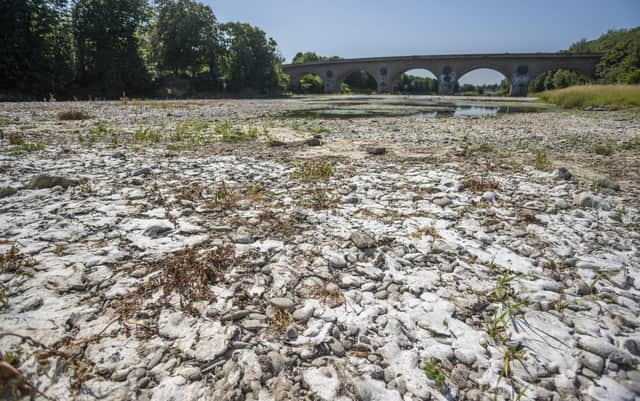Permission to remove water from drought-hit River Tweed to be suspended from tonight


A lack of rainfall in recent months has meant that parts of the River Tweed catchment reached Significant Scarcity last week – the highest category for water scarcity defined by SEPA.
Recent rainfall has not been sufficient to reverse the current situation, which has been building up over a long period of time. The long-term forecast is for a return to dry conditions.
Advertisement
Hide AdAdvertisement
Hide AdThe combination of very low river flows and high temperatures in the river can lead to the death of fish, invertebrates and plants. While some parts of the river ecology can recover quickly, others such as Atlantic Salmon populations can take years to recover.
The River Tweed is a Site of Special Scientific Interest (SSSI) and Special Area of Conservation (SAC) and in addition to its environmental importance, it is estimated that fishing on the Tweed brings in around £24 million to the local economy each year and supports more than 500 jobs.
Jamie Stewart, clerk to the River Tweed Commission, said: “Climate change is already leading to significant variations in weather patterns with drier summers and wetter winters predicted to continue.
"While the River Tweed Commission welcomes the suspension announcement from SEPA, we believe that the current water scarcity plans are inadequate to protect fish stocks both in the short and longer term.
Advertisement
Hide AdAdvertisement
Hide Ad"We are deeply concerned at the significant problems being created by low water levels and high temperatures for Atlantic Salmon, sea and brown trout and are raising these concerns with SEPA and The Scottish Government in order to encourage a review of the system allowing the damaging extraction of water from the river by industry and agriculture during prolonged dry conditions.”
According to SEPA, the temporary suspensions affect around 30 licence holders, predominantly within the agriculture sector and aim to allow water levels to recover and minimise potential long-term harm to the environment. The abstractors affected will receive suspension notices, which will be lifted as soon as possible.
The suspensions are part of Scotland’s National Water Scarcity Plan, which is designed to ensure the correct balance is struck between protecting the environment and providing resource for human and economic activity during prolonged dry periods.